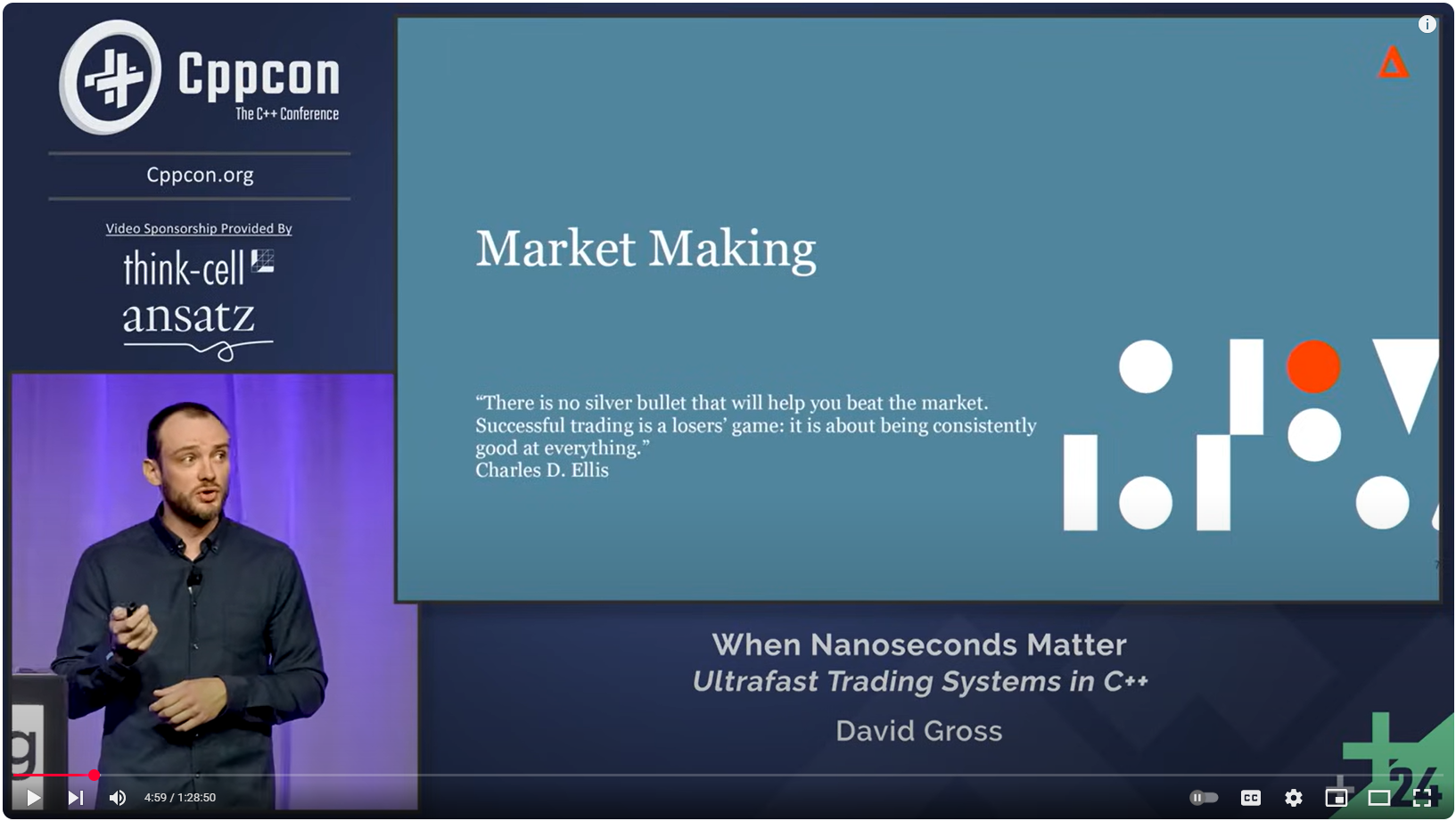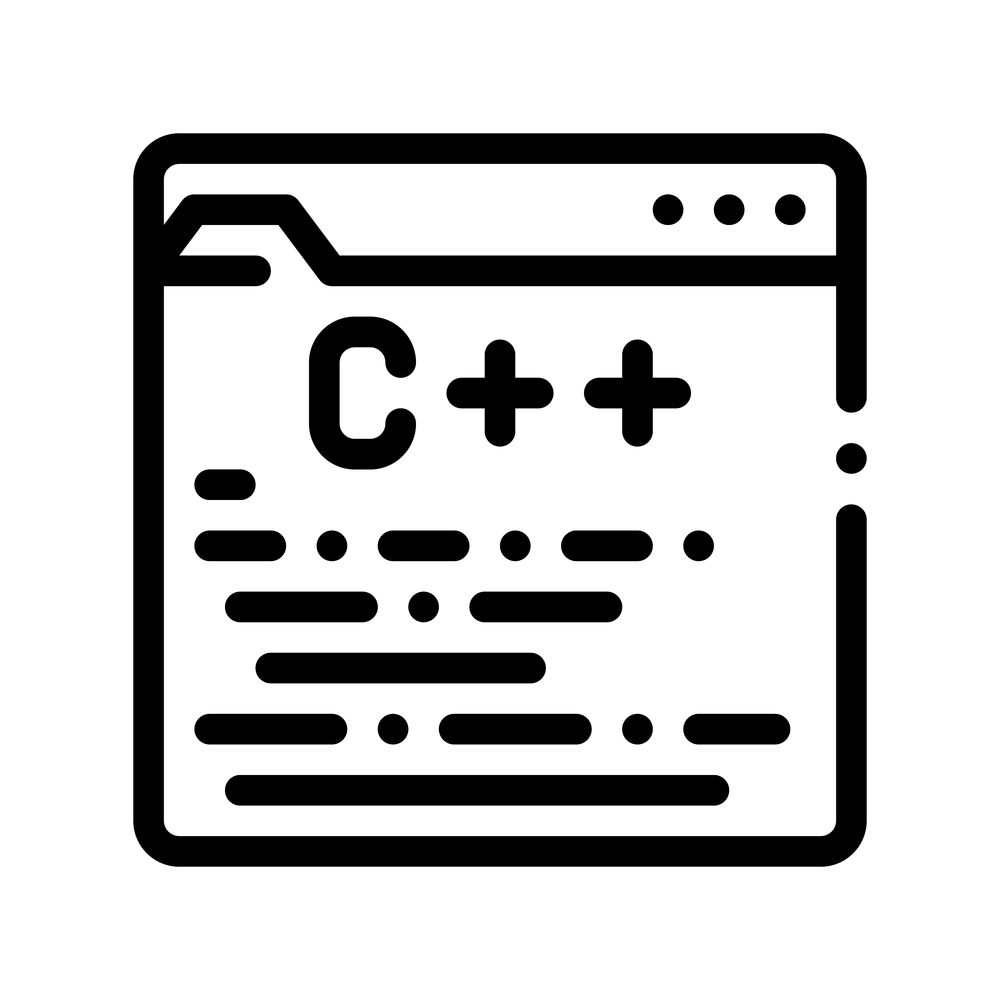CppCon 2024 When Nanoseconds Matter: Ultrafast Trading Systems in C++ -- David Gross
 Registration is now open for CppCon 2025! The conference starts on September 13 and will be held in person in Aurora, CO. To whet your appetite for this year’s conference, we’re posting videos of some of the top-rated talks from last year's conference. Here’s another CppCon talk video we hope you will enjoy – and why not register today for CppCon 2025!
Registration is now open for CppCon 2025! The conference starts on September 13 and will be held in person in Aurora, CO. To whet your appetite for this year’s conference, we’re posting videos of some of the top-rated talks from last year's conference. Here’s another CppCon talk video we hope you will enjoy – and why not register today for CppCon 2025!
When Nanoseconds Matter: Ultrafast Trading Systems in C++
by David Gross
Summary of the talk:
Achieving low latency in a trading system cannot be an afterthought; it must be an integral part of the design from the very beginning. While low latency programming is sometimes seen under the umbrella of "code optimization", the truth is that most of the work needed to achieve such latency is done upfront, at the design phase. How to translate our knowledge about the CPU and hardware into C++? How to use multiple CPU cores, handle concurrency issues and cost, and stay fast?
In this talk, I will be sharing with you some industry insights on how to design from scratch a low latency trading system. I will be presenting building blocks that application developers can directly re-use when in their trading systems (or some other high performance, highly concurrent applications).
Additionally, we will delve into several algorithms and data structures commonly used in trading systems, and discuss how to optimize them using the latest features available in C++. This session aims to equip you with practical knowledge and techniques to enhance the performance of your systems and make informed decisions about the tools and technologies you choose to employ.

 Constexpr has been around for a while now, but many don’t fully understand its subtleties. Andreas Fertig explores its use and when a constexpr expression might not be evaluated at compile time.
Constexpr has been around for a while now, but many don’t fully understand its subtleties. Andreas Fertig explores its use and when a constexpr expression might not be evaluated at compile time. C++’s undefined behaviour impacts safety. Sandor Dargo explains how and why uninitialised reads will become erroneous behaviour in C++26, rather than being undefined behaviour.
C++’s undefined behaviour impacts safety. Sandor Dargo explains how and why uninitialised reads will become erroneous behaviour in C++26, rather than being undefined behaviour. In the December issue of Overload [
In the December issue of Overload [ Friday, May 30th, 2025, 10:00 - 18:00 Berlin time (online)
Friday, May 30th, 2025, 10:00 - 18:00 Berlin time (online)